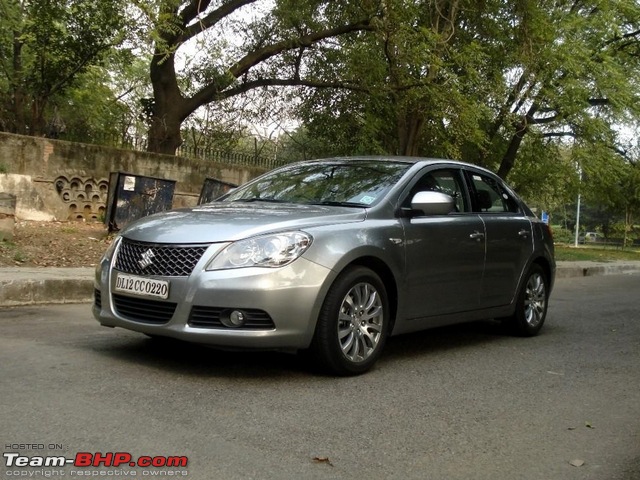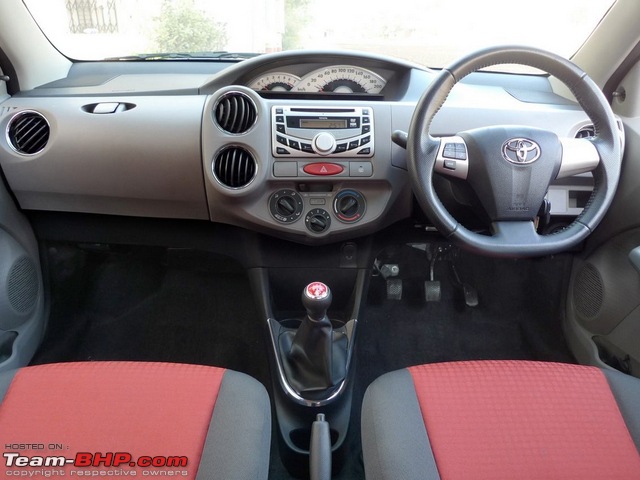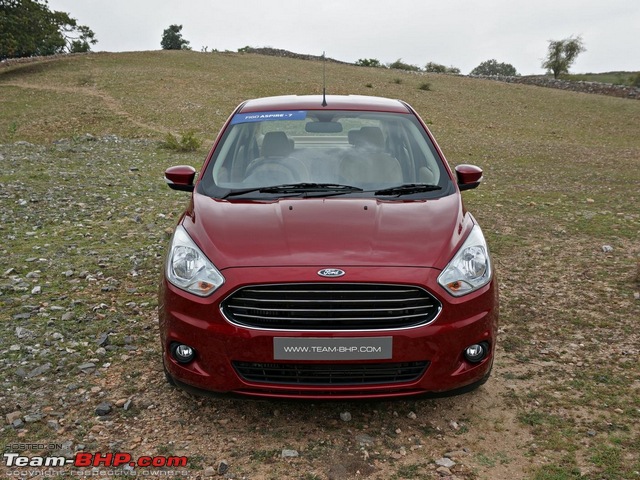| |||||||
| Search Forums |
| Advanced Search |
| Go to Page... |
 |
| Search this Thread |  55,276 views |
| | #1 |
| Team-BHP Support  | Why car companies shouldn't move away from their core values Related Thread When I was going through some flops on the June sales thread (link), my mind just went "how can some companies abandon what they stand for?". Every brand stands for something and they shouldn't move away from that. If they do, it should be an exception rather than the rule (say, with an experimental car). But when companies make it a habit & destroy their core values - what they stand for - it ends up badly for them. When you stay at any Taj Hotel, you expect 5 star hospitality. When you eat at a McDonalds, you expect a delicious meal that's also light on the pocket. If you pay a premium for an iPhone, you expect it to be a top class all-rounder. If you buy MRF tyres, they had better be durable & priced well. If any of the above-mentioned brands don't deliver on their core expectations, customers will be disappointed. It's a similar case in the auto world, and surprising how some car companies miss meeting a basic expectation that the market has of their products. Allow me to give you some examples (please add to the list with your contribution): Maruti = Value for money. Take a look at all their best sellers today and each of them is priced well (including the Vitara Brezza which forced a price cut on the EcoSport). But when the car maker tries to move away from the VFM positioning - no matter what the segment - it bombs. Overpriced Baleno sedan in 1999? Flop. Overpriced Kizashi? Flop. Rs. 3 lakh premium for a 1.6 engine (in the S-Cross)? Flop. No thanks, 85% of customers will happily buy the S-Cross 1.3L. It's not that Maruti's million+ rupee cars failed because of the brand. They failed because they didn't offer what the brand stood for (value). The cars were simply overpriced. Tata = Trust. To most Indians, buying any product or service from the Tata Group means you can't go wrong. The Tata Group enjoys phenomenal brand equity in the market. However, one part of the Tata Group i.e. the passenger car division hasn't exactly lived up to that. The 1st-gen Indicas & Indigos destroyed Tata Motor's brand name due to their poor reliability & durability. Many spent over a million bucks on the old Safari, only to bring home an SUV plagued with problems (just ask TSK1979). Net result: Today, Tata is building competent cars, but other than the Tiago (early days yet), all have bombed. Even the competent Bolt & Zest are poor performers (Bolt sales have settled in the triple digits). Once you lose the customer's trust, it's nearly impossible to get it back. Toyota = Quality. Innova for 25 lakhs? We'll lap them up. Toyota knows quality is what drives it and has various campaigns around the alphabet 'Q' (Q service, Q promise etc.). When the company associated with quality launches outdated cars with cheap interiors & loads of cost-cutting, the country gives them a pass. Toyota had high hopes that the Liva & Etios will increase its market share in India, but the pair have failed to live up to their parent's expectations. Honda: Quality. In the hey days, their cars never had a lot of features, yet they surely were built to last. My 1st-gen Honda City Vtec had over-engineered mechanicals and was put together with incredible precision. Many 2nd-gen Jazz owners comment that their cars had better quality than the current 3rd-gen Jazz. The new City's niggles have been off-putting; just not expected on a Honda! The Mobilio's lack of quality was a shocker for its 10 lakh price. Sure doesn't seem like it's a car from the same company that gave us the Civic. Additionally, Hondas have always had a refined nature. However, the 1.5L diesel has turned away a lot of prospective buyers because it's the noisiest in the segment. Chevrolet: Chevrolet is unique because they don't have a single core attribute. No one knows what the brand stands for (not even its CEO), and that's due to a confused product strategy. So far in India, GM has sold European cars (Astra, Corsa), cheap Chinese ones (Sail, Enjoy), competent Korean ones (Beat, Cruze) and old Japanese models (Tavera). This 'pav bhaji' approach doesn't work - take a look at the sales thread and you'll see a long list of flops from the American giant. Another brand that stands for nothing is Nissan. No surprise every Nissan on sale in India is a dud. Mercedes: Durability & Quality. Mercs of the 70s, 80s & 90s were over-engineered marvels that could easily outlast their owners. The cost cutting strategy of the new millennium saw both - quality & durability - nosedive, leaving an endless trail of unhappy owners. You don't want to spend 50 lakhs and be stranded on a driving holiday at a nearby hill station, while your employee just drove happily from Mumbai to Kashmir in his Maruti, do you? Or have the car suffer problems multiple times a year? Mercedes has since vowed to make a comeback. Early days yet, but their new cars *appear* to be of superior quality. Will be keeping an eye on their longer-term reliability. Ford: Driving pleasure, solid build. From the Ikon to the Mondeo and the Fiesta to the EcoSport, Fords have always been fun to drive. They've had a typically European build too. Bring cars that abandon these core values & Ford fans start looking elsewhere. The new Figo twins neither have sharp handling nor that 'solid' build. One of the car makers consistently sticking to its core values is Hyundai - nearly all their products are all-rounders in their respective segments, while also being quality-leaders  . . VW's cars might be old, yet the brand has stuck true to its promise of 'innovation, technology & solidity' at an attainable price  . Even its entry level car - the Polo - gets a direct-injection turbo petrol and dual-clutch gearbox. The Ameo is a departure for VW though, and the least impressive product it has on sale today. Let's see how the market responds. . Even its entry level car - the Polo - gets a direct-injection turbo petrol and dual-clutch gearbox. The Ameo is a departure for VW though, and the least impressive product it has on sale today. Let's see how the market responds. What other brands & misses can BHPians think of? Last edited by GTO : 27th July 2016 at 15:42. |
| |  (118)
Thanks (118)
Thanks
 |
| The following 118 BHPians Thank GTO for this useful post: | Aaron:), Abhi_abarth, Aceman82, Aditya, amit_purohit20, amolbh, ampere, arunphilip, AutoIndian, avdhesh15, avisidhu, AYP, bblost, BigBrad, BlackPearl, browneyes, chinmaypillay, Chuckster, cn.vishnu, createrkid, cs_rajesh, dark.knight, deetjohn, Dennis, dileepcm, Divya Sharan, dkaile, drmohitg, dZired, fusionbang, Gannu_1, gendarmee, GKMahajan, Grand Drive, haria, harry10, heavenlybull, hybridpetrol, IcarusMan, iliketurtles, InControl, jetti, JoseVijay, Karthik Chandra, Keynote, kiku007, KPS, libranof1987, livetodrive, LoneRidder, LordSharan, Mahesh Prasad, MaheshY1, MavericK46, mazda4life, mi2n, Mithrandir, mrinmoy_s, msdivy, mukul32, myavu, nalinsaxena23, naveenroy, nmenon, noopster, NPV, Omkar, pankaj09, parsh, Passiautonate, PearlJam, poised2drive, Prafful_Rathod, Rajeevraj, RavenAvi, RoadSurfer, rohitoasis, romeomidhun, romydeora, rr_zen, rshanker, RSR, S2!!!, saikishor, saket77, samabhi, Samba, scopriobharath, sdp1975, shatananda.k, Sheel, shree_shell, silverado, Skyline_GT, SmartCat, SnS_12, sri2012, SS-Traveller, Stratos, sups, swiftnfurious, Technocrat, The Rationalist, theexperthand, theredliner, Tojo_GotBhp, turbodude, V.Narayan, v12, vaasu, vb-saan, veyron_head, vibbs, Viju, vivekgk, WAM-4, wilful, ysjoy |
| |
| | #2 |
| Team-BHP Support  | Re: Why car companies shouldn't move away from their core values Thread moved from the Assembly Line to the Indian Car Scene! |
| |  (2)
Thanks (2)
Thanks
 |
| The following 2 BHPians Thank GTO for this useful post: | amit_purohit20, Divya Sharan |
| | #3 |
| Distinguished - BHPian  | Re: Why car companies shouldn't move away from their core values I believe there are lot of such cases. Let's take the premium German brands for example. People buy these brands in most of the cases (not the cars but the brands). While buying an aspirational product and paying big money, the buyer won't even think about a hatchback (A-Class, 1-Series) or a Van/MUV (B-Class/R-Class). They might be very good and practical cars but the typical Indian buyer doesn't see value in them. If he is looking at practicality then he buys a Innova straight away. Volkswagen is offering almost the same product under 3 different brands. The parent brand is well-connected with the masses. So it should focus on more mass-market products while leaving the premium offerings to Audi. When they thought differently, Toureg/Passat/Phaeton came and vanished. While Tata Motors isn't doing well now, back in late 90's, it made a successful move from being a CV maker to a passenger car maker. It did falter initially but still persisted in its efforts and got decent success. The other Indian manufacturer, M&M is famous for its UVs. The initial UVs were not very successful until the Bolero and then the Scorpio came in. When it ventured into the sedan/hatchback category (Logan/Verito/Vibe), it just flopped. We can blame the product itself for being barebones but then M&M never made a serious attempt to rectify it. The manufacturers should also consider the accepted use of a particular model by the public while launching it. Today, if M&M launches a Bolero with all the bells and whistles with a price tag undercutting the Scorpio by 1-2 lakhs, it won't sell (similar to Bolero Storm). Maruti Versa failed because nobody wanted a better and comfortable Omni at 1.5-2 times the price. Similarly, when Indigo was selling well, the premium Grand XL failed because it was targeted at the wrong audience (executives) while people saw it as a comfortable cheap sedan. |
| |  (6)
Thanks (6)
Thanks
 |
| The following 6 BHPians Thank ashis89 for this useful post: | AutoIndian, GTO, JoseVijay, Luv_Jaiswal, RavenAvi, RSR |
| | #4 |
| Team-BHP Support  | Re: Why car companies shouldn't move away from their core values Mahindra might be a good example that supports your argument - sticking to a product range builds on its image of making "tough" SUVs. Their monocoques too are SUVs (XUV500 and KUV100). However, I feel this might be a statistical fallacy. We are looking at top 10 sales hits and then using it to support the argument. Instead, imagine you are the MD of Honda India or Ford India. You bring in quality product like 1st gen Honda Jazz, and it bombs. You bring in Ford Mondeo because you believe that people will pay for a product that has excellent driving manners (like Europeans do) and it bombs. As an MD, the most natural thing for you to do would be to take a look at top 10 sales hit charts. And see how they are winning. Hire experts from companies that make the sales hits, and bring in products that are similar to them. You hope that BRAND will be the differentiating factor. I'm not sure if this is a bad strategy, because anyway you are in big trouble when one company dominates the scene. Sticking to the "core values" only keeps the enthusiasts happy, not the parent company/investors. ADDED: Hyundai is actually an example of company that moved AWAY from its core values of producing cheap/value for money products (Santro, Accent) into premium products (Elite i20, Creta) - and succeeded. They failed a couple of times (Sonata, Tucson, Terracan), yes, but were eventually rewarded. Last edited by SmartCat : 27th July 2016 at 16:50. |
| |  (47)
Thanks (47)
Thanks
 |
| The following 47 BHPians Thank SmartCat for this useful post: | //M, Aaron:), adimicra, amit_purohit20, ampere, arunphilip, avdhesh15, avisidhu, CrAzY dRiVeR, DicKy, GTO, hybridpetrol, Jakku, JoseVijay, karan85, Karthik Chandra, Leoshashi, libranof1987, LoneRidder, MidnightBlack, mohitk1993, mrbaddy, narayans80, procrj, Rajeevraj, RavenAvi, revintup, RSR, sainyamk95, samabhi, Samba, sayakc, SDP, SnS_12, sri2012, Sting, sukiwa, Teesh@BHP, The Rationalist, thoma, v12, vb-saan, VeluM, vibbs, Vitalstatistiks, vivekgk, WAM-4 |
| | #5 | ||
| Distinguished - BHPian  | Re: Why car companies shouldn't move away from their core values Quote:
Tiago might be a good example to a certain extent. Tata has tried to load it with features (like the Hyundais), has made it fuel efficient (like the Marutis) and has offered good interior space+ride quality (like a Tata). It did the same with the Zest-Bolt twins but fell short in exterior design department. I said Tiago has come a certain extent because it still weighs heavy (which makes me wonder if the additional weight helps in better ride quality). Quote:
We also need to look the Companies's international market since these companies don't develop models to be sold in India only. For a Hyundai, which is considered premium here in India, might be termed as a 'cheap' alternative in US. So, each model has to be built, equipped and then positioned differently. Last edited by ashis89 : 27th July 2016 at 17:11. Reason: Spell check | ||
| |  (13)
Thanks (13)
Thanks
 |
| The following 13 BHPians Thank ashis89 for this useful post: | arunphilip, AutoIndian, deetjohn, GTO, Jakku, JoseVijay, noopster, Rahul Bhalgat, RavenAvi, SmartCat, swiftnfurious, v12, WAM-4 |
| | #6 |
| Distinguished - BHPian  Join Date: Sep 2010 Location: Liverpool/Delhi
Posts: 5,439
Thanked: 7,543 Times
| Re: Why car companies shouldn't move away from their core values The biggest loser here is Toyota for me ( discounting GM and Nissan). Toyota could have and still can do wonders in our market for the kind of brand following they enjoy. The decision to enter the mass level segments was a right one but the execution was all wrong. A half baked product like the Etios and Liva just did not find any takers. Even today most owners of these cars are all praises for the long term reliability and spacious interiors. But the atrociously downmarket interiors made sure that these were never going to become a success in our market. Sadly even now they seem to want to continue with the same approach, rather that significantly changing the interior design and quality in these two cars. |
| |  (8)
Thanks (8)
Thanks
 |
| The following 8 BHPians Thank drmohitg for this useful post: | amit_purohit20, AutoIndian, GTO, Jakku, Mahesh Prasad, RavenAvi, The Rationalist, vaasu |
| | #7 |
| Distinguished - BHPian  | Re: Why car companies shouldn't move away from their core values Its a case of damned if you do, damned if you don't.  I think of Fiat. What defines them? Great automobiles. Well engineered. Crap ergonomics. Tough. Metal seatbacks in the rear to prevent intrusion, in the interest of safety. I can go on. They've largely stayed true to these attributes. And what's happened? Apart from being worshipped by the few (e.g. us) they are rejected by the many. A good month is when their sales touches 4 digits in a month. Now, I'm not sure what goes on at Fiat/FCA's HQ, but they are somewhat chilled out about not cracking into the mass market (maybe because of the national engine's royalties) and are happy in their niche. And that's good for us enthusiasts. On the other hand, imagine a company that has sunk a lot of money into their India operations. They see this ripe and growing market, and want a piece of the pie. There's going to be the inevitable pressure and try and follow what the market leader is offering. That's the reason why you have many manufacturers trying to emulate Maruti's VFM formula. That's the reason we see cut price Toyota Etios, tinny Ford Aspires, and my personal whipping boy, the Renault Kwid. And that's why I started off saying its a case of damned if you do, damned if you don't. Last edited by arunphilip : 27th July 2016 at 17:46. |
| |  (27)
Thanks (27)
Thanks
 |
| The following 27 BHPians Thank arunphilip for this useful post: | ampere, asr245, AutoIndian, avisidhu, baz_303, bmuser, CrAzY dRiVeR, deetjohn, dr.fixated, GTO, hybridpetrol, Jakku, JoseVijay, Keynote, mohitk1993, mroptimist, narayans80, nehaagg, Rahul Bhalgat, Rajeevraj, RavenAvi, Samba, SmartCat, swiftnfurious, The Rationalist, theexperthand, Vysakh |
| | #8 |
| BANNED Join Date: Apr 2015 Location: Kochi
Posts: 924
Thanked: 7,279 Times
| Re: Why car companies shouldn't move away from their core values I can vouch for this. I own an Aspire, and Ford has made a big mistake by foregoing its core values . It's neither here nor there. When you move away from something that's your strengths, better be sure that you have it in you to make that work. Ford thought they can make the Figo twins succeed like the value for money Marutis. But they forgot their own loyal customers who came and ended up disappointed and to rub on to the misery, the value for money customers never look beyond Maruti and they didn't even land in Ford showrooms. The pricing of Ecosport was the culprit. Ford was short sighted with its pricing and was looking to make profits for the short term. They forgot to strangle hold the segment for the long term with value for money pricing, and the Ecosport fell when Maruti stormed the segment with a value for money car. This should be a lesson for any business, never ever look for the short term. If Ford was selling it at a value proposition, Maruti wouldn't have dared to engineer a sub 4 meter compact SUV. |
| |  (13)
Thanks (13)
Thanks
 |
| The following 13 BHPians Thank The Rationalist for this useful post: | arunphilip, deetjohn, GTO, heavenlybull, Jakku, JoseVijay, Keynote, nalinsaxena23, Rajeevraj, RavenAvi, Samba, swiftnfurious, vinya_jag |
| | #9 |
| BHPian Join Date: Nov 2011 Location: Bangalore
Posts: 700
Thanked: 1,941 Times
| Re: Why car companies shouldn't move away from their core values To me Hyundai is surely on a back foot and signs are 'loud and clear'. From providing segment best features (6 airbags in a hatch, all 4 discs in a sedan, Diesel automatic in a C segment..) to cutting down on a auto chromatic rear view mirror on the new Creta, missing essentials is really disappointing and definitely not a right thing to do  |
| |  (3)
Thanks (3)
Thanks
 |
| The following 3 BHPians Thank vinair for this useful post: | AYP, GTO, swiftnfurious |
| | #10 | |
| BHPian Join Date: Sep 2015 Location: Bangalore
Posts: 191
Thanked: 519 Times
| Re: Why car companies shouldn't move away from their core values Quote:
1. If you are copying other products, you are not building a brand, because you are not differentiating yourself. You are not communicating anything to the customer about what your product stands for, or is better than the others out there. 2. End of innovation. You will always be behind the curve since you will be waiting for others to launch their products and be successful before you even make a beginning on what you want to create. Your brand would be a laggard, not a leader. 3. You are telling all your engineering, marketing and product design talent to pack up and go home, since what they created is not selling. You are going to make what the competitor sells. 4. The competitor may be successful for reasons that go beyond the product itself (case in point: Maruti's extensive ASS network). Do you have that as well? The only way to win is to launch a superior product. For a Ford Mondeo that was unsuccessful, there is also a Ford Ecosport that shared the same characteristics (excellent build and driving manners) and has been a great success. For a Honda Jazz that failed, there is also the Honda City (1-3rd Gen) that was a resounding success due to its quality and despite being at a premium. 4th gen City, despite all its niggles, is still reaping the rewards of that brand equity. Its wrong to assume that Indian buyers will not pay for quality. If everyone was looking at what is selling to determine their product strategy, we would never have products like Renault Duster, Ford Ecosport, Toyota Innova, all of them successful and unlike anything that was being sold when they were launched. I do agree with GTO that the Ford Figo and Aspire have had lukewarm response since they went away from the brand's core strengths and tried to be more mass market. But they don't have the ASS network that is needed to cater to the mass market, and no amount of advertising can fix that. | |
| |  (7)
Thanks (7)
Thanks
 |
| The following 7 BHPians Thank mustang_shelby for this useful post: | Aaron:), GTO, livetodrive, Mahesh Prasad, NiXTriX2004, RavenAvi, SmartCat |
| | #11 | |
| Senior - BHPian Join Date: Jun 2008 Location: Kolkata
Posts: 1,476
Thanked: 1,207 Times
| Re: Why car companies shouldn't move away from their core values BMW seems to have stuck to its core values - Drivers Cars, Decent Service, Overall good looking cars, but thanks to the price increase among other factors, they have lost major market share in India Quote:
Last edited by AbhiJ : 27th July 2016 at 18:39. | |
| |  (4)
Thanks (4)
Thanks
 |
| The following 4 BHPians Thank AbhiJ for this useful post: | Crazy_cars_guy, GTO, Jakku, wilful |
| |
| | #12 |
| Senior - BHPian Join Date: Dec 2007 Location: Gurgaon
Posts: 1,162
Thanked: 389 Times
| Re: Why car companies shouldn't move away from their core values I don't really understand who defined these core values? I am guessing - the market. Cheap, reliable, fuel efficient - Maruti/Hyundai Premium image yet reliable & efficient - Honda/Toyota TATA - taxi (not sure what the mass market thinks about other brands) Maruti has been trying to break that image through premium dealerships (NEXA). Should it not try to do this? I believe a big reason why the Kizashi failed was because of cheap car image problem + IIRC it was a CBU & it didn't look like a million & half rupees. Same problem for Hyundai with Tucson. Rather than core values, it's the product which is faulty. |
| |  (2)
Thanks (2)
Thanks
 |
| The following 2 BHPians Thank asr245 for this useful post: | GTO, Vitalstatistiks |
| | #13 |
| BHPian Join Date: Jun 2015 Location: Bangalore
Posts: 120
Thanked: 126 Times
| Re: Why car companies shouldn't move away from their core values BMW moving away from RWD, hydraulic steering to FWD (as seen on all new X1), EPS is clearly an example of diluting the company's core value and going mass market. Most of the latest generation BMWs are reported to be un-BMW-wish. They might see sales success in the shot term but is sure to lose out to other brands in the long run if the trend continues. |
| |  (3)
Thanks (3)
Thanks
 |
| The following 3 BHPians Thank super.cars for this useful post: | CrAzY dRiVeR, GTO, noopster |
| | #14 |
| Senior - BHPian Join Date: Oct 2008 Location: Bangalore/Goa
Posts: 1,302
Thanked: 2,074 Times
| Re: Why car companies shouldn't move away from their core values +1, GTO. I've noticed one thing with Ford. Every Ford that's designed in Brazil seems to be moving away from the Driver DNA while those designed in the US/Europe still have their driver-focused genes intact. The old Fiesta, Figo, new Fiesta (B-Platform) and Ecosport were designed in Europe. The new Figo twins came from Brazil. And at Ford's Brazilian R&D center (for emerging markets), I think it's the case of the business suits rather than white coats taking 'core value' decisions. I drive a Figo 1.4 TDCI, and though the new Figo 1.5 Diesel is a rocket, it doesn't feel half as involving. IMHO, Ford missed a big party trick with the new Figos, which now have great pep to be serious enthusiast machines. Cheers, Jay Last edited by JayPrashanth : 27th July 2016 at 19:14. |
| |  (11)
Thanks (11)
Thanks
 |
| The following 11 BHPians Thank JayPrashanth for this useful post: | Aaron:), ampere, CrAzY dRiVeR, dZired, GTO, Jakku, JoseVijay, MavericK46, RavenAvi, swiftnfurious, The Rationalist |
| | #15 |
| Team-BHP Support  | Re: Why car companies shouldn't move away from their core values
Good points. But it doesn't have to be a binary THIS or THAT. The best business strategy is to take a middle ground and have models at lower price range (that moves away from brand's core values) and a higher price range (sticks to the brand's core values). Lots of companies are taking the middle ground, and hence on the right glide path to success. Examples: 1) Honda will bring out the next generation low cost brio platform. I'm pretty sure they are working on a new generation of iDtec engines. Why? Because they tasted blood. But Honda India has taken a course correction now, and is also planning to introduce Honda Civic, Honda Accord hybrid etc. If you want a real Honda, you can still buy one. 2) Maruti has a big list of products that stick to its core values (Eg: Ciaz, Brezza). But that is not stopping them from introducing premium products (Eg: S-Cross, Baleno). And bingo, it has been a success. 3) Tata got back to basics (VFM, its core value) with Tiago, but they are also planning to launch products based on Land Rover platform. Toyota threw in the towel way too soon with the Etios platform. Just reading Team-BHP would have given them an idea about why Etios platform has failed, and why it makes lot of sense to come up with a new gen platform. Now, one would think that Hyundai does NOT have "two" faces - mass market & premium. But they have taken a different but extremely subtle approach. What they have done is bring out a zillion variants across price ranges - no other manufacturer has such a variety. This means you can buy a Elite i20 for Rs. 6 lacs (aimed at mass market), but you can also buy an Elite i20 for Rs. 11 Lacs (aimed at premium segment). And when you see the sales thread, you will see that Hyundai has sold 10,000 copies a month - you would naturally assume that "premium" Elite i20 has so many takers. What you are missing is that a significant number of sales could be from models that have no airbags, no ABS, no significant features to talk about and possible structural safety issues (going by Grand i10 crash fail) Last edited by SmartCat : 27th July 2016 at 20:17. Reason: Removed magazine screenshot |
| |  (17)
Thanks (17)
Thanks
 |
| The following 17 BHPians Thank SmartCat for this useful post: | Aaron:), arunphilip, baz_303, Crazy_cars_guy, deetjohn, GTO, hybridpetrol, JoseVijay, Mahesh Prasad, MidnightBlack, mukul32, PearlJam, RavenAvi, sourabhzen, The Rationalist, WAM-4, ysak |
 |









